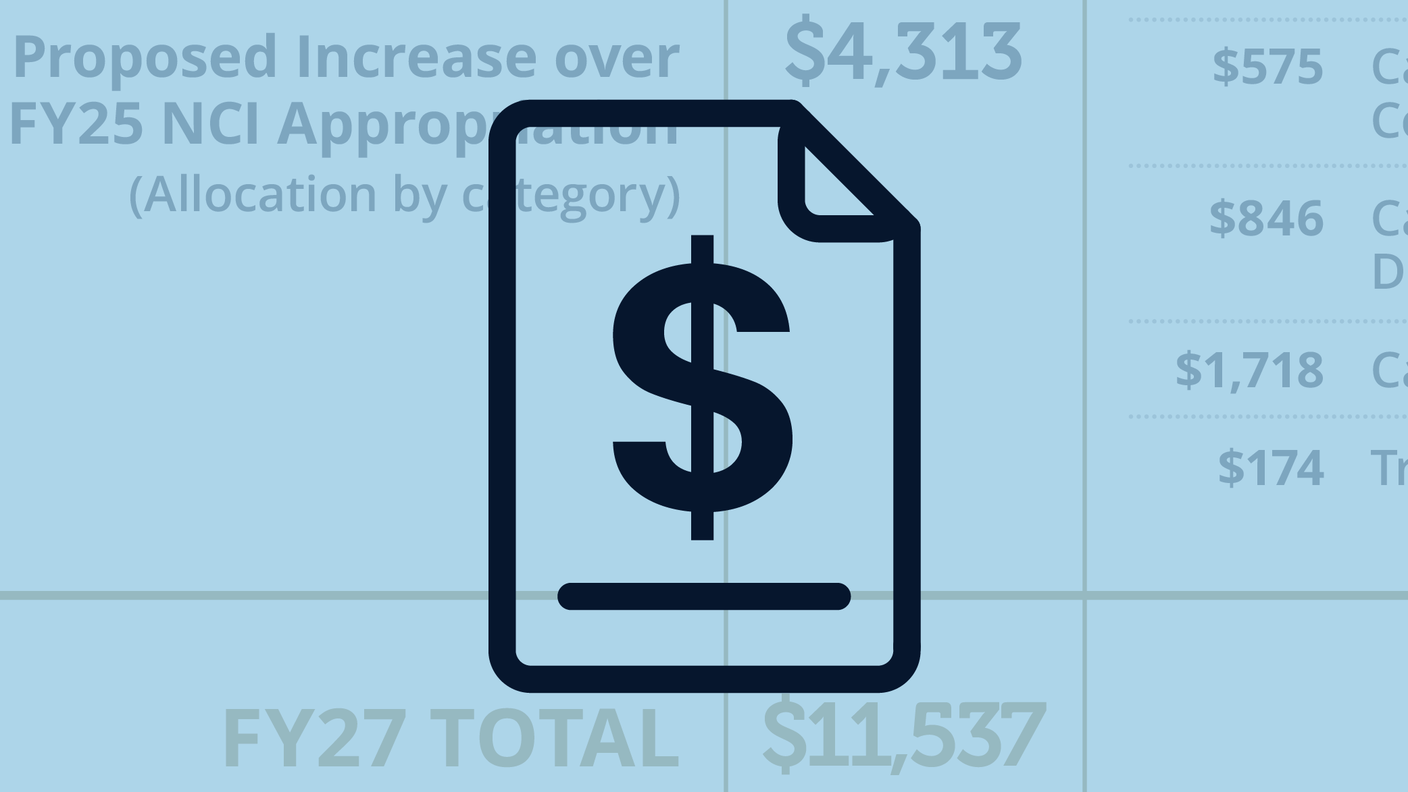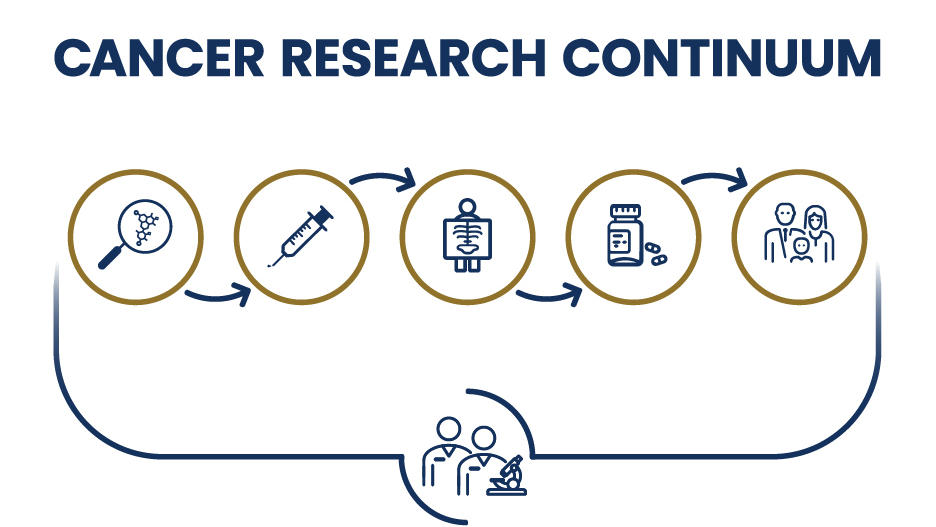NCI Fiscal Year 2027 Annual Plan & Professional Judgment Budget

The Value of Investment in Cancer Research
-
 Executive Summary
Executive SummaryThis summary provides an overview of how the funding described in this estimated budget will allow NCI to achieve the full potential of cancer research and help people live longer, healthier lives.
-
 NCI Professional Judgment Budget Estimate
NCI Professional Judgment Budget EstimateThis estimate presents NCI's assessment of the funding needed in fiscal year 2027 to accelerate progress to end cancer as we know it for all people.
-
 Stories of Cancer Research
Stories of Cancer ResearchNCI supports cancer research to advance scientific knowledge and enhance the quality and length of life for all people diagnosed with cancer.

NCI Research Portfolio: Driving Cancer Discoveries
NCI invests in a broad portfolio of research, supports the cancer workforce, and sustains research infrastructure.
Read More
Scientific Opportunities in Cancer Research
NCI highlights four areas of scientific opportunity for fiscal year 2027.
Read More